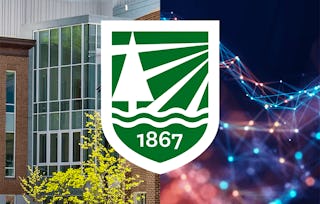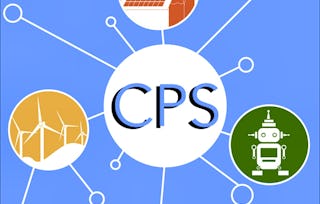Le big data et l'intelligence artificielle sont les principaux thèmes abordés dans les sciences sociales computationnelles, mais l'aspect le plus complexe de ces sciences est peut-être l'utilisation d'outils informatiques pour explorer et développer la théorie des sciences sociales. Ce cours montre comment les simulations informatiques sont utilisées pour explorer le domaine de ce qui est théoriquement possible. Les simulations informatiques nous permettent d'étudier les raisons pour lesquelles les sociétés sont telles qu'elles sont, et de rêver au monde dans lequel nous aimerions vivre. Cela peut être aussi intuitif que de jouer à un jeu vidéo. Tout comme le célèbre jeu vidéo SimCity est utilisé pour construire et gérer une ville artificielle, nous utilisons des modèles basés sur des agents pour développer et étudier des sociétés artificielles. Sans nuire à personne dans le monde réel, les simulations informatiques nous permettent d'explorer les moyens de rendre le monde meilleur. Nous jouons avec plusieurs modèles de simulation informatique pratiques et explorons comment nous pouvons combiner des modèles hypothétiques avec des données du monde réel. Enfin, vous programmerez vous-même une société artificielle simple, de bas en haut. Cela vous permettra de ressentir la complexité de la conception des systèmes sociaux, tout en découvrant la facilité avec laquelle nos nouveaux outils informatiques nous permettent de mener à bien des tâches aussi ardues.

Simulations informatiques

Simulations informatiques
Ce cours fait partie de Spécialisation Sciences sociales computationnelles
Enseigné en Français (doublage IA)

Instructeur : Martin Hilbert
9 930 déjà inscrits
Inclus avec
84 reviews
Compétences que vous acquerrez
- Catégorie : Programmation Informatique
- Catégorie : Économie
- Catégorie : Analyse des réseaux sociaux
- Catégorie : Évaluation de modèles
- Catégorie : Simulations
- Catégorie : Pensée systémique
- Catégorie : Sciences sociales
- Catégorie : Méthodes scientifiques
- Catégorie : Systèmes agentiques
- Catégorie : Sociologie
Détails à connaître

Ajouter à votre profil LinkedIn
Découvrez comment les employés des entreprises prestigieuses maîtrisent des compétences recherchées

Élaborez votre expertise du sujet
- Apprenez de nouveaux concepts auprès d'experts du secteur
- Acquérez une compréhension de base d'un sujet ou d'un outil
- Développez des compétences professionnelles avec des projets pratiques
- Obtenez un certificat professionnel partageable

Il y a 4 modules dans ce cours
Dans ce module, vous serez en mesure de définir les simulations informatiques théoriques, en particulier les modèles à base d'agents (ABM). Vous serez en mesure de rappeler comment et pourquoi les modèles à base d'agents peuvent être utiles et vous pourrez examiner le célèbre modèle de ségrégation de Schelling.
Inclus
11 vidéos3 lectures2 devoirs2 sujets de discussion
Dans ce module, vous serez en mesure d'identifier comment mélanger différents modèles pour en créer de nouveaux, plus complexes. Vous pourrez explorer comment créer des versions sophistiquées de sociétés artificielles. Vous pourrez également examiner une société artificielle appelée Sugarscape.
Inclus
13 vidéos1 lecture1 devoir
Dans ce module, vous pourrez découvrir comment on utilise les simulations informatiques pour résoudre des problèmes pratiques. Vous serez en mesure de discuter des modèles basés sur les agents (ABM) et d'identifier comment les ABM peuvent être utilisés dans les sciences sociales.
Inclus
12 vidéos1 devoir
Dans ce module, vous serez en mesure de décrire ce que sont les modèles basés sur les agents. Vous serez en mesure d'identifier leurs capacités et leurs limites. Vous serez en mesure de définir et d'utiliser le vocabulaire et la terminologie relatifs à la réflexion sur les modèles. Vous serez également en mesure de coder à l'aide de NetLogo et de créer votre propre société artificielle.
Inclus
15 vidéos2 lectures1 devoir1 évaluation par les pairs
Obtenez un certificat professionnel
Ajoutez ce titre à votre profil LinkedIn, à votre curriculum vitae ou à votre CV. Partagez-le sur les médias sociaux et dans votre évaluation des performances.
Instructeur

Offert par
En savoir plus sur Apprentissage automatique
 Statut : Essai gratuit
Statut : Essai gratuitDartmouth College
 Statut : Essai gratuit
Statut : Essai gratuitUniversity of California, Davis
 Statut : Essai gratuit
Statut : Essai gratuit Statut : Prévisualisation
Statut : PrévisualisationUniversity of California, Santa Cruz
Pour quelles raisons les étudiants sur Coursera nous choisissent-ils pour leur carrière ?

Felipe M.

Jennifer J.

Larry W.

Chaitanya A.
Avis des étudiants
- 5 stars
75 %
- 4 stars
11,90 %
- 3 stars
4,76 %
- 2 stars
1,19 %
- 1 star
7,14 %
Affichage de 3 sur 84
Révisé le 30 juil. 2023
Enjoyed Netlogo and the introduction to ABM courses
Révisé le 15 juil. 2023
That was a great class. I really enjoyed the hand-on NetLogo work.
Révisé le 18 oct. 2020
Very useful course for learning basics of ABM and NetLogo programming. We went over many variations of Sugarscape model and got some good insights on what ABM is.

Ouvrez de nouvelles portes avec Coursera Plus
Accès illimité à 10,000+ cours de niveau international, projets pratiques et programmes de certification prêts à l'emploi - tous inclus dans votre abonnement.
Faites progresser votre carrière avec un diplôme en ligne
Obtenez un diplôme auprès d’universités de renommée mondiale - 100 % en ligne
Rejoignez plus de 3 400 entreprises mondiales qui ont choisi Coursera pour les affaires
Améliorez les compétences de vos employés pour exceller dans l’économie numérique
Foire Aux Questions
Voici quelques réflexions partagées par des étudiants qui ont travaillé sur le contenu de la Specialization on Computational Social Science:
"J'ai beaucoup apprécié cette formation et, surtout, elle m'a permis d'acquérir des compétences exceptionnellement importantes pour répondre aux exigences de mon nouveau poste à Munich. Vous serez peut-être intéressé de connaître l'impact de votre cours sur le salaire. Dans mon cas, les connaissances et la certification acquises ajoutent environ 20 000 euros au salaire annuel (ce qui le porte à environ 120 000 euros par an)"
mon impression générale est la suivante :"J'ai hâte d'utiliser cette formation :J'ai hâte de m'en servir pour d'autres choses !
"Je pense absolument que ces outils pourraient être utilisés dans mes futurs emplois, ou même dans le cadre d'une réflexion personnelle. Si vous grattez et analysez les commentaires/réactions que votre entreprise reçoit sur Youtube, Twitter, Instagram, etc. qu'est-ce que leur utilisation de la langue dit sur la façon dont ils interagissent avec votre marque - ou ce que votre marque fait ressortir en eux ?"
"Wow, c'est un truc cool et amusant. Même si je ne poursuivrai peut-être rien de lié aux sciences sociales dans un avenir proche, il est toujours agréable d'apprendre et d'expérimenter tous ces outils que les sciences sociales computationnelles offrent et bénéficient à toutes sortes de carrières et de domaines d'étude."
"J'ai particulièrement apprécié le web-scraping pour une raison ou une autre. Cela semble très avancé bien que ce soit très facile. ...Cela semble être un moyen très rapide et efficace de saisir des données."
"J'ai aimé jouer avec l'apprentissage automatique ! ...J'ai également été étonné par la rapidité avec laquelle il a été capable de saisir et d'apprendre nos données en quelques secondes. Je me demande à quel point la technologie va progresser au cours des prochaines années... C'est effrayant mais fascinant
"Le fait que ces outils soient si facilement utilisables et accessibles est incroyable à mes yeux. Non seulement nous y avons accès comme nous avons accès à des choses comme Facebook et Twitter, mais ils sont GRATUITS."
"L'aspect le plus intéressant est le fait que ces outils sont tous gratuits et en ligne. Auparavant, seuls les chercheurs des universités bien financées avaient accès à des programmes tels que ceux que nous utilisons dans tous nos laboratoires. Aujourd'hui, même une personne n'ayant pas de grandes connaissances techniques sur les logiciels complexes peut utiliser ces outils
"Je suis tellement surprise que ces outils soient accessibles à tous par un simple téléchargement, et encore plus qu'ils soient très conviviaux et qu'il soit facile d'apprendre à naviguer. Je prévois de créer une entreprise de vêtements à l'avenir et je pense qu'il me sera très utile de pouvoir analyser autant de données en ligne."
"En tant qu'étudiante en analyse et planification des politiques environnementales, j'ai été fascinée d'apprendre qu'il était possible de simuler la mise en œuvre et l'impact d'une politique à plusieurs reprises dans un court laps de temps
"L'UCCSS m'a permis d'avoir plus confiance en mes capacités avec un ordinateur et de mieux comprendre des entreprises comme Facebook ou Twitter. ...ces outils sont vraiment puissants mais aussi dangereux. ...Ils permettent à des individus puissants de manipuler des idées."
"Toutau long du cours, le contenu était stimulant, mais lorsqu'il était finalement appliqué aux laboratoires à la fin de chaque module, il était vraiment gratifiant de voir tout ce qui se passait. C'était encore plus gratifiant lorsque cela avait du sens ! ... Je suis vraiment content d'avoir suivi ce cours ! C'était vraiment un défi, mais je suis contente d'avoir pu expérimenter et apprendre tant de sujets dont je ne soupçonnais même pas l'existence."
"C'était amusant de voir les résultats du code que j'ai créé, et je n'aurais jamais pensé que je ferais quelque chose comme ça dans ma vie. Les résultats m'ont également montré à quoi ressemblerait la société.... L'analyse des réseaux sociaux et le web scraping pourraient être les outils que j'utiliserai dans mon futur emploi, car tous les stages que je recherche actuellement sont liés aux médias sociaux ou aux médias numériques
"J'aspire à une carrière d'expert en marketing numérique. Ces outils informatiques ont d'énormes implications pour ce domaine."
"J'ai vraiment adoré le fait que ce cours m'ait permis d'apprendre par la pratique et de me familiariser avec des outils qui ont une application dans le monde réel et qui combinent les STIM et les sciences sociales. Je pense que beaucoup de ces outils sont utiles bien au-delà des activités de devoirs."
"Le meilleur cours que j'ai suivi. J'aimerais que davantage de cours en ligne structurés comme celui-ci soient proposés
Cette Specialization on Computational Social Science est le résultat d'un effort collectif avec des contributions de professeurs des 10 campus de l'Université de Californie. Elle est coordonnée par Martin Hilbert, de l'UC Davis, et compte avec des conférences de :
1) UC Berkeley :Joshua Blumenstock, Prof. iSchool ;Stuart Russell, Professeur d'informatique et d'ingénierie.
2) UC Davis :Martin Hilbert, Prof., Dpt. of Communication &Seth Frey, Prof., Dpt. of Communication &Cynthia Gates, Director of the IRB.
3) UC Irvine :Lisa Pearl, professeur de sciences cognitives.
4) UC Los Angeles :PJ Lamberson, Prof. adjoint, études de communication.
5) UC Merced :Paul Smaldino, professeur de sciences cognitives et de l'information.
6) UC Riverside :Christian Shelton, professeur d'informatique.
7) UC San Diego :James Fowler, Prof. Global Public Health and Political Science.
8) UC San Francisco :Maria Glymour, Associate Prof. School of Medicine, Social Epidemiology & Biostatistics.
9) UC Santa Barbara :René Weber, Prof. Dpt. of Communication & Media Neuroscience Lab (avec Frederic Hopp).
10) UC Santa Cruz :Marilyn Walker, professeur d'informatique, directrice de Computational Media.
Pour accéder aux supports de cours, aux devoirs et pour obtenir un certificat, vous devez acheter l'expérience de certificat lorsque vous vous inscrivez à un cours. Vous pouvez essayer un essai gratuit ou demander une aide financière. Le cours peut proposer l'option "Cours complet, pas de certificat". Cette option vous permet de consulter tous les supports de cours, de soumettre les évaluations requises et d'obtenir une note finale. Cela signifie également que vous ne pourrez pas acheter un certificat d'expérience.
Plus de questions
Aide financière disponible,
¹ Certains travaux de ce cours sont notés par l'IA. Pour ces travaux, vos Données internes seront utilisées conformément à Notification de confidentialité de Coursera.

